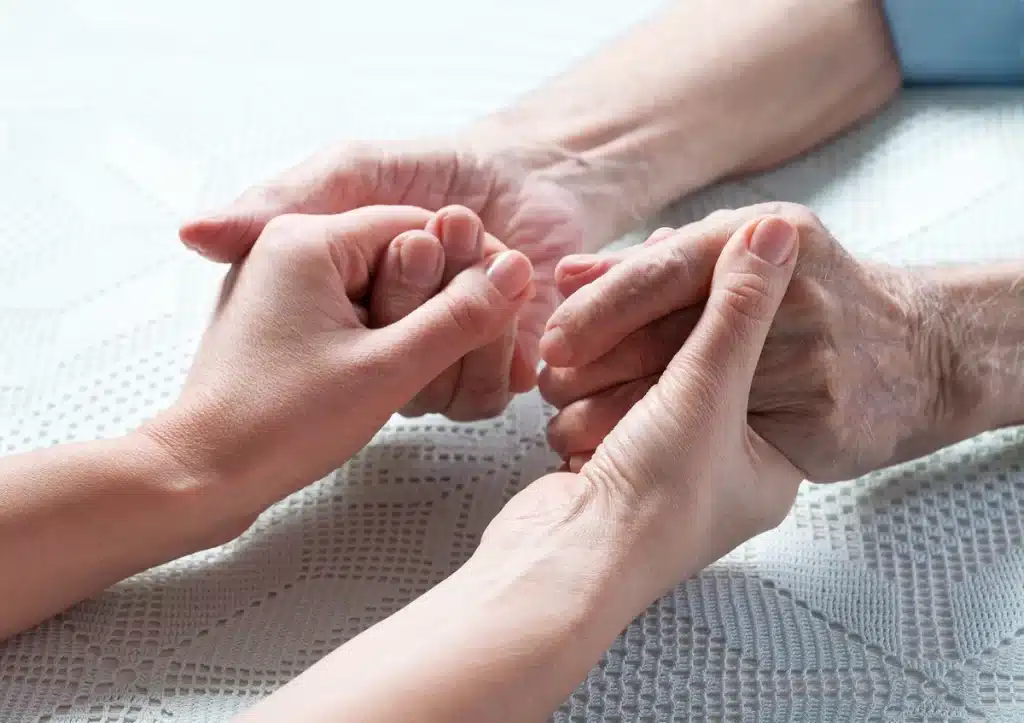By dialing the provided phone number, you consent to receive SMS messages
By dialing the provided phone number, you consent to receive SMS messages

Understanding Parkinson’s Disease
Parkinson’s Disease continues to be studied by experts, but loved ones and seniors might wonder what they can do in the meantime to reduce risk factors. Many ongoing studies suggest ways to possibly reduce the risk, and for now, those are the things that loved ones and seniors should focus on. With the help of home care, seniors might be able to get a jump on the disease.
What is Parkinson’s Disease?
Parkinson’s disease is a neurological condition most common in those in their later years. It is caused by the gradual death of neurons in the brain responsible for making dopamine, which results in a drop in dopamine levels and, consequently, motor symptoms such as tremors, stiffness, and trouble moving.
In addition to movement symptoms, Parkinson’s disease can induce non-motor symptoms such as cognitive impairment, depression, and anxiety. Parkinson’s disease has no known cure; however, some medications may help manage symptoms and improve quality of life.
Who is at Risk for Parkinson’s Disease?
Parkinson’s disease is more likely to appear in adults over 60, making seniors an especially high-risk group for the condition. In addition, the non-motor symptoms of Parkinson’s disease, such as cognitive impairment and depression, may be more likely to manifest in those of advanced age.
It is essential for seniors and the home care team who assist them to be familiar with the signs and symptoms of Parkinson’s disease and to seek medical assistance if they have any reason to believe that seniors might be at risk.
The disease can be slowed down in its progression, and the senior’s quality of life can improve if diagnosed and treated early. In addition, seniors who are diagnosed with Parkinson’s disease benefit from receiving support and resources such as occupational therapy, physical therapy, and social support groups.
How can Seniors Reduce the Risk of Parkinson’s Disease?
As mentioned above, it’s not yet known if there are any guaranteed treatments to prevent Parkinson’s. However, the following tips are encouraged by medical professionals.
-
- Exercise regularly: Regular physical activity can help seniors maintain a healthy weight and possibly reduce their risk of developing Parkinson’s Disease. Studies have shown that exercise can also help improve balance and mobility in individuals with Parkinson’s Disease.
-
- Eat a healthy diet: Home care professionals can help seniors focus on a diet that is high in fruits, vegetables, and whole grains. Eating this way can help reduce inflammation and oxidative stress, both of which are recognized to be risk factors for Parkinson’s disease. Eating processed meals, sugary beverages, and saturated fats should also be restricted for seniors.
-
- Get enough sleep: Sleep is essential for health and well-being, and studies have shown that poor sleep quality may increase the risk of Parkinson’s Disease. Seniors should aim for at least 7-8 hours of sleep each night and practice good sleep hygiene habits, such as avoiding caffeine and electronic devices before bedtime.
-
- Manage stress: Reducing stress is good for overall health and well-being, but it might also help reduce the risk of Parkinson’s Disease. Some techniques that seniors can try include yoga and meditation.
- Stay socially engaged: Isolation might lead to a higher risk of Parkinson’s Disease. Seniors should try to stay connected with friends and family, join community groups or clubs, or volunteer in their community.
If you or a loved one are looking for experienced Home Care in Leesburg, VA, contact SenCura at 703-880-2547. Providing in-home senior care in Northern Virginia.
Search
Category
Recent Posts
Professional Memberships
We are members of the following organizations.




